- Cardiac MRI key diagnostic tool in suspected cardiac tumour, predictive of prognosis
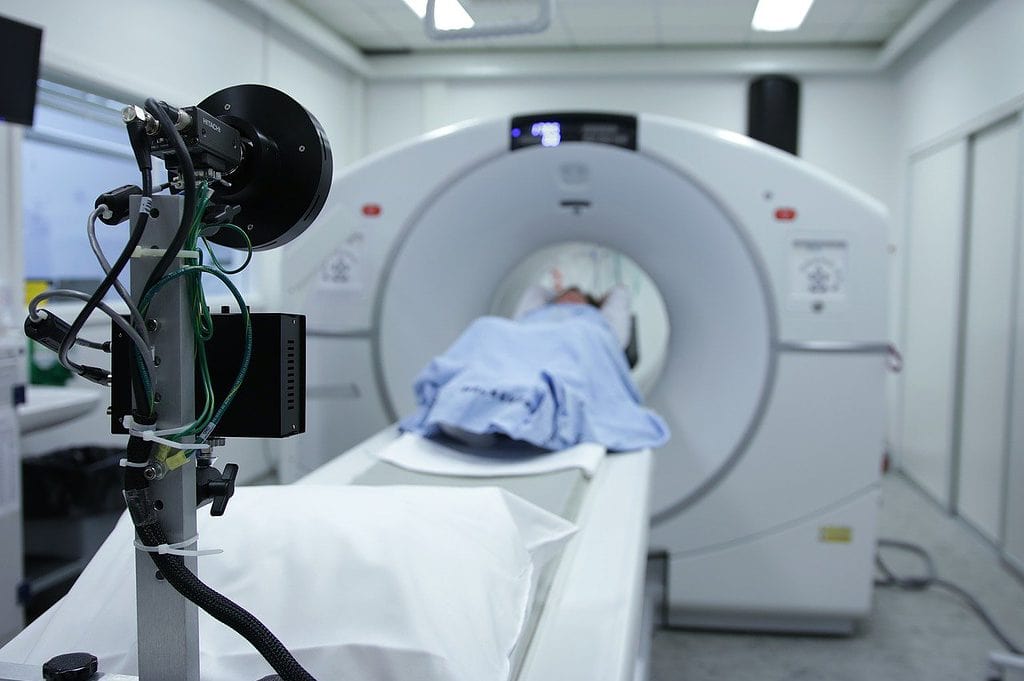 By Ahmed El-Medany This research by Shenoy et al included 903 individuals undergoing CMRI for suspected cardiac tumour. The cardiac MRI diagnosis of ‘no mass’ was made for 25% of the cohort, ‘pseudomass’ for 16%, thrombus for 16%, ‘benign tumour’ for 17%, and ‘malignant tumour’ for 23%. The MRI diagnosis was accurate in 98.4% of patients. The estimated 5-year rate of all-cause mortality was 22% for patients with no mass, 26% for pseudomass, 17% for benign tumour, 36% for thrombus, and 73% for malignant … Read more
By Ahmed El-Medany This research by Shenoy et al included 903 individuals undergoing CMRI for suspected cardiac tumour. The cardiac MRI diagnosis of ‘no mass’ was made for 25% of the cohort, ‘pseudomass’ for 16%, thrombus for 16%, ‘benign tumour’ for 17%, and ‘malignant tumour’ for 23%. The MRI diagnosis was accurate in 98.4% of patients. The estimated 5-year rate of all-cause mortality was 22% for patients with no mass, 26% for pseudomass, 17% for benign tumour, 36% for thrombus, and 73% for malignant … Read more - Clinical Validation and Evaluation of the novel six lead handheld ECG recorder compared to the 12 lead ECG in unselected cardiology patients (EVALECG Cardio)
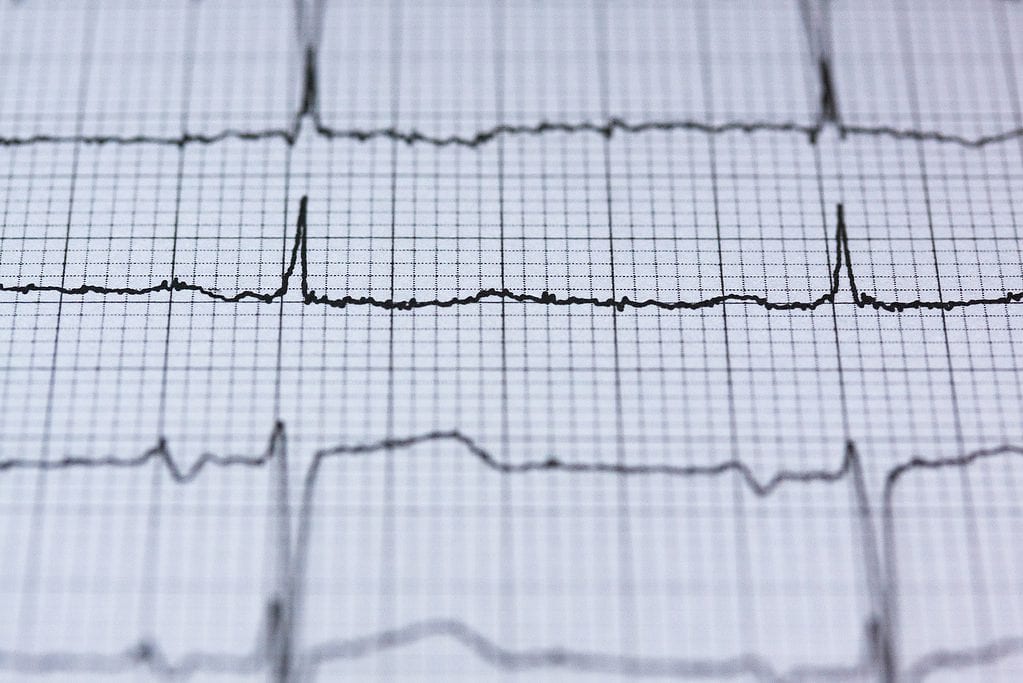 By M Azram et al Taken directly from European Heart Journal – Digital Health There is a lack of studies validating the use of handheld devices against the standard 12 lead ECG. The Kardia 6 L is a novel handheld ECG monitor which can produce a 6 lead ECG. This prospective study compared the 6 L ECG against the 12 lead ECG. Unselected cardiac inpatients and outpatients All participants had a 12 and 6 Lead ECGs All ECG parameters were analysed by using a standard method template … Read more
By M Azram et al Taken directly from European Heart Journal – Digital Health There is a lack of studies validating the use of handheld devices against the standard 12 lead ECG. The Kardia 6 L is a novel handheld ECG monitor which can produce a 6 lead ECG. This prospective study compared the 6 L ECG against the 12 lead ECG. Unselected cardiac inpatients and outpatients All participants had a 12 and 6 Lead ECGs All ECG parameters were analysed by using a standard method template … Read more - Early CTCA in patients with suspected ACS: RCT – results
 By AJ Gray et alTaken directly from BMJ In intermediate risk patients with acute chest pain and suspected acute coronary syndrome, early CT coronary angiography did not alter overall coronary therapeutic interventions or one year clinical outcomes, but reduced rates of invasive angiography while modestly increasing length of hospital stay. These findings do not support the routine use of early CT coronary angiography in intermediate risk patients with acute chest pain and suspected acute coronary syndrome. Adults with suspected or a provisional diagnosis of … Read more
By AJ Gray et alTaken directly from BMJ In intermediate risk patients with acute chest pain and suspected acute coronary syndrome, early CT coronary angiography did not alter overall coronary therapeutic interventions or one year clinical outcomes, but reduced rates of invasive angiography while modestly increasing length of hospital stay. These findings do not support the routine use of early CT coronary angiography in intermediate risk patients with acute chest pain and suspected acute coronary syndrome. Adults with suspected or a provisional diagnosis of … Read more - Reducing barriers to MRI in patients with CIEDs
 Taken directly from European Heart Journal Many cardiac pacemakers and defibrillators are not approved by regulators for magnetic resonance imaging (MRI) which makes patient access to MRI challenging, but there is no evidence of increased clinical risk. It is estimated that patients have a 50–75% probability of requiring an MRI during the lifetime of the device.This study showed there was no increased risk of MRI in patients with non-MR conditional pacemaker or defibrillator leads when following recommended protocols. Patients undergoing clinical 1.5T MRI with … Read more
Taken directly from European Heart Journal Many cardiac pacemakers and defibrillators are not approved by regulators for magnetic resonance imaging (MRI) which makes patient access to MRI challenging, but there is no evidence of increased clinical risk. It is estimated that patients have a 50–75% probability of requiring an MRI during the lifetime of the device.This study showed there was no increased risk of MRI in patients with non-MR conditional pacemaker or defibrillator leads when following recommended protocols. Patients undergoing clinical 1.5T MRI with … Read more - Multimodality imaging of myocardial viability: An expert consensus document from the European Association of Cardiovascular Imaging (EACVI)
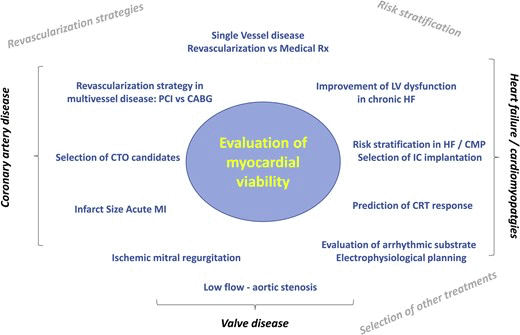 By Saadia Aslam This expert consensus document reviews current insight into the underlying pathophysiology and available methods for assessing viability. In particular the document reviews contemporary viability imaging techniques, including stress echocardiography, single photon emission computed tomography, positron emission tomography, cardiovascular magnetic resonance, and computed tomography and provides clinical recommendations for how to standardise these methods in terms of acquisition and interpretation. Finally, it presents clinical scenarios where viability assessment is clinically useful. Read full article ReferenceAna G Almeida, John-Paul Carpenter, Matteo Cameli, Erwan … Read more
By Saadia Aslam This expert consensus document reviews current insight into the underlying pathophysiology and available methods for assessing viability. In particular the document reviews contemporary viability imaging techniques, including stress echocardiography, single photon emission computed tomography, positron emission tomography, cardiovascular magnetic resonance, and computed tomography and provides clinical recommendations for how to standardise these methods in terms of acquisition and interpretation. Finally, it presents clinical scenarios where viability assessment is clinically useful. Read full article ReferenceAna G Almeida, John-Paul Carpenter, Matteo Cameli, Erwan … Read more - Utility of CT coronary angiography in non-ST elevation acute coronary syndrome
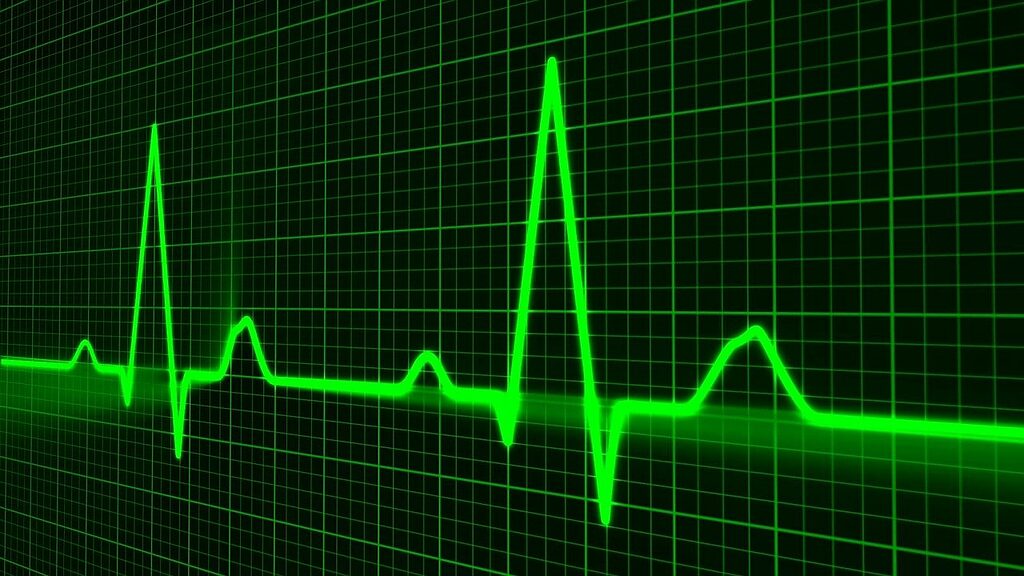 By Syed Ghias Take Home Messages Coronary computed tomographic angiography (CCTA) is a well-established non-invasive diagnostic modality which reliably rules out obstructive coronary artery disease in patients with chronic coronary syndrome. CCTA is now also recommended as an alternative diagnostic strategy to invasive angiography to exclude ACS when there is a low-to-intermediate likelihood of coronary artery disease. Although CCTA demonstrates high diagnostic performance in patients with non-ST elevation acute coronary syndrome, a strategy of routine CCTA makes little difference to treatment decisions or 1-year … Read more
By Syed Ghias Take Home Messages Coronary computed tomographic angiography (CCTA) is a well-established non-invasive diagnostic modality which reliably rules out obstructive coronary artery disease in patients with chronic coronary syndrome. CCTA is now also recommended as an alternative diagnostic strategy to invasive angiography to exclude ACS when there is a low-to-intermediate likelihood of coronary artery disease. Although CCTA demonstrates high diagnostic performance in patients with non-ST elevation acute coronary syndrome, a strategy of routine CCTA makes little difference to treatment decisions or 1-year … Read more - Myocarditis recognised rare adverse association with COVID-19 vaccine
 By Ahmed El-Medany In a case series of 23 male patients, by Montgomery et al (2021), myocarditis was identified within 4 days of administration of a COVID-19 vaccine. 20 out of 23 of these patients received a diagnosis of myocarditis following their second dose of mRNA COVID-19 vaccine. It is important to note that these episodes occurred against a backdrop of 2.8 million delivered doses of mRNA COVID-19 vaccine in the United States. Furthermore, a case series by Rosner et al (2021) in Circulation, … Read more
By Ahmed El-Medany In a case series of 23 male patients, by Montgomery et al (2021), myocarditis was identified within 4 days of administration of a COVID-19 vaccine. 20 out of 23 of these patients received a diagnosis of myocarditis following their second dose of mRNA COVID-19 vaccine. It is important to note that these episodes occurred against a backdrop of 2.8 million delivered doses of mRNA COVID-19 vaccine in the United States. Furthermore, a case series by Rosner et al (2021) in Circulation, … Read more - The ECHOES cardiovascular digital twin: the brain assist device needed to make sense of data overload?
 By Ahmed El-Medany Presented by Prof Tim Chico, Honorary Consultant Cardiologist and Professor of Cardiovascular medicine, University of Sheffield. The Digital Innovation in Cardiology session at BCS 2021 was a fascinating and inspiring insight into the technology available in various areas of Cardiology and covered exciting digital prospects for the future. Prof Chico ended the session by talking about an exciting project looking at streamlining and simplifying the abundance of data presented to us in our day-to-day clinical work. ‘ECHOES is built on the … Read more
By Ahmed El-Medany Presented by Prof Tim Chico, Honorary Consultant Cardiologist and Professor of Cardiovascular medicine, University of Sheffield. The Digital Innovation in Cardiology session at BCS 2021 was a fascinating and inspiring insight into the technology available in various areas of Cardiology and covered exciting digital prospects for the future. Prof Chico ended the session by talking about an exciting project looking at streamlining and simplifying the abundance of data presented to us in our day-to-day clinical work. ‘ECHOES is built on the … Read more - Artificial Intelligence, precision phenotyping and risk prediction in cardiomyopathy
 By Ahmed El-Medany Presented by Prof O’Regan, MRC Investigator and Consultant Radiologist, Imperial College London The Digital Innovation in Cardiology session at BCS 2021 was a fascinating and inspiring insight into the technology available in various areas of Cardiology and covered exciting digital prospects for the future. Prof O’Regan discussed Artificial Intelligence’s (AI) role in cardiovascular imaging; particularly when integrating imaging and non-imaging data, understanding new mechanisms of heart disease, and early diagnosis and risk prediction. The speaker demonstrated some excellent examples of 3D … Read more
By Ahmed El-Medany Presented by Prof O’Regan, MRC Investigator and Consultant Radiologist, Imperial College London The Digital Innovation in Cardiology session at BCS 2021 was a fascinating and inspiring insight into the technology available in various areas of Cardiology and covered exciting digital prospects for the future. Prof O’Regan discussed Artificial Intelligence’s (AI) role in cardiovascular imaging; particularly when integrating imaging and non-imaging data, understanding new mechanisms of heart disease, and early diagnosis and risk prediction. The speaker demonstrated some excellent examples of 3D … Read more - Prevalence of LA thrombus despite guideline directed anticoagulation – results from a meta-analysis
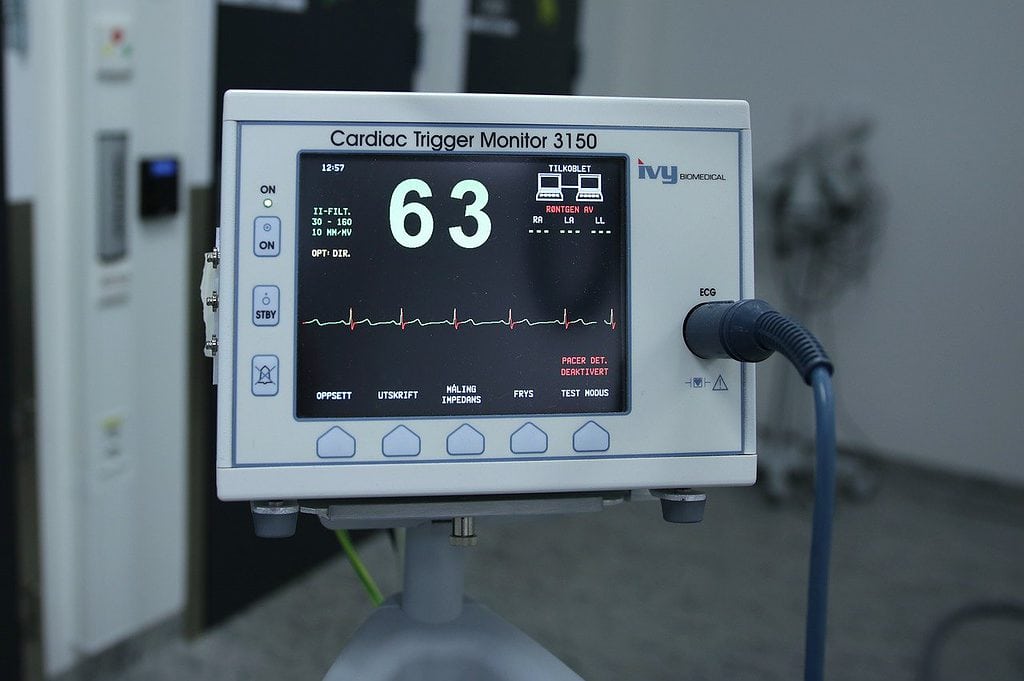 Taken directly from the American College of Cardiology A summary by Sarah Kohnstamm, MD, FACC Quick Takes This meta-analysis set out to answer the prevalence of LA thrombus in patients with atrial fibrillation or flutter on guideline-directed anticoagulation. It further identified higher-risk populations in whom the diagnostic yield of a pre-procedure TEE would be beneficial. The overall prevalence of LA thrombus in patients with atrial fibrillation or flutter, receiving a minimum of 3 weeks of uninterrupted anticoagulation, was approximately 3%. The prevalence of LA thrombus … Read more
Taken directly from the American College of Cardiology A summary by Sarah Kohnstamm, MD, FACC Quick Takes This meta-analysis set out to answer the prevalence of LA thrombus in patients with atrial fibrillation or flutter on guideline-directed anticoagulation. It further identified higher-risk populations in whom the diagnostic yield of a pre-procedure TEE would be beneficial. The overall prevalence of LA thrombus in patients with atrial fibrillation or flutter, receiving a minimum of 3 weeks of uninterrupted anticoagulation, was approximately 3%. The prevalence of LA thrombus … Read more - Can artificial intelligence guide novice operators to obtain echocardiographic scans with limited diagnostic utility?
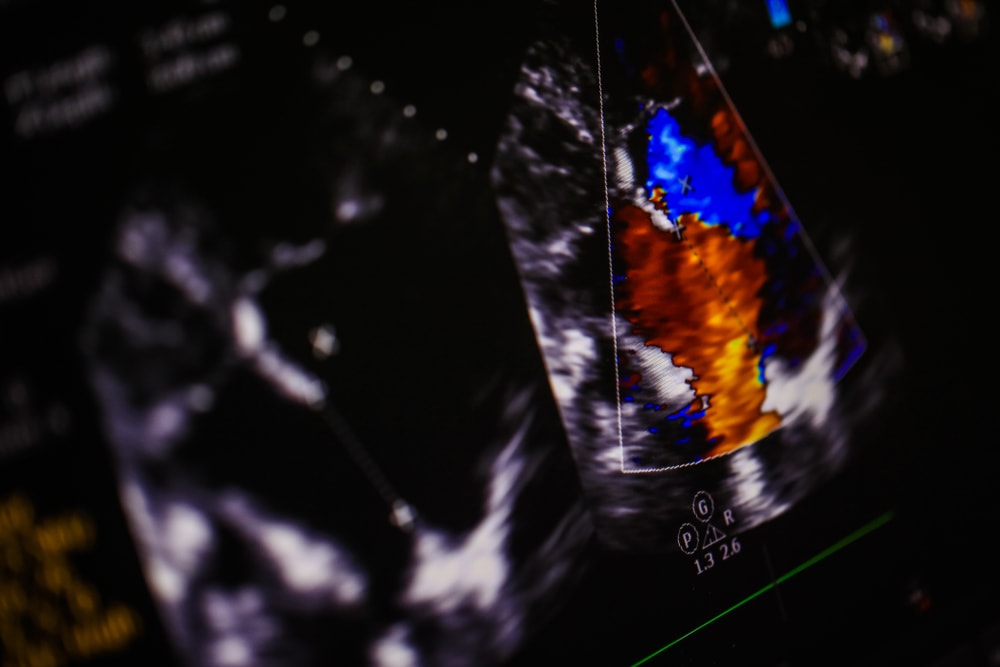 By A. Narang et al In this prospective, multi-centre diagnostic study by Narang et al, a cohort of 8 nurses without prior ultrasonography experience used artificial intelligence guidance to scan 30 patients each with a 10-view echocardiographic protocol (240 total patients). Five expert echocardiographers blindly reviewed these scans and felt they were of diagnostic quality for left ventricular size and function in 98.8% of patients, right ventricular size in 92.5%, and presence of pericardial effusion in 98.8%. Artificial intelligence can extend the reach of … Read more
By A. Narang et al In this prospective, multi-centre diagnostic study by Narang et al, a cohort of 8 nurses without prior ultrasonography experience used artificial intelligence guidance to scan 30 patients each with a 10-view echocardiographic protocol (240 total patients). Five expert echocardiographers blindly reviewed these scans and felt they were of diagnostic quality for left ventricular size and function in 98.8% of patients, right ventricular size in 92.5%, and presence of pericardial effusion in 98.8%. Artificial intelligence can extend the reach of … Read more - Application of Machine Learning to X-Ray and CT images in the diagnosis of COVID-19
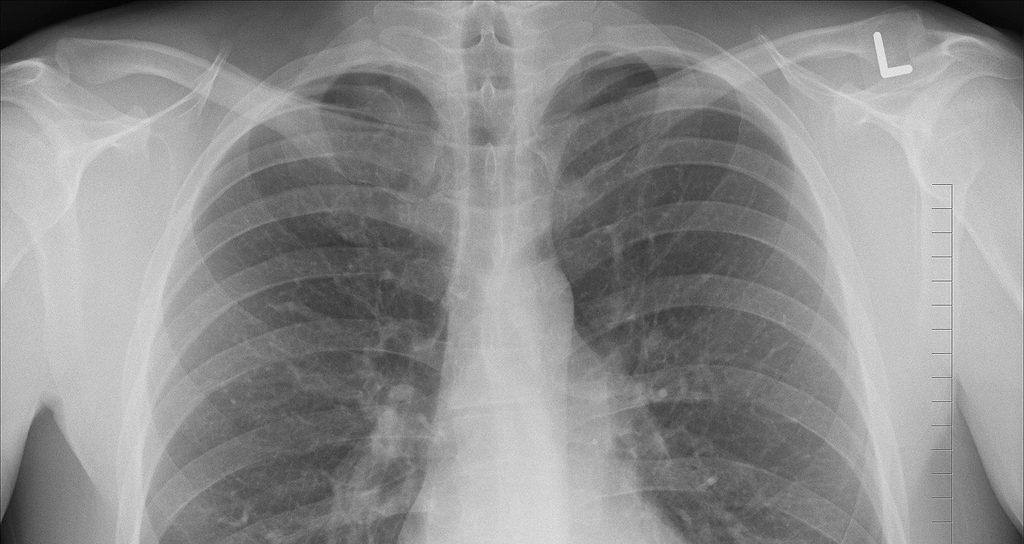 By Ahmed El-Medany Chest CT scans and X-ray images have been reported to have sensitivity values of 98 and 69%, respectively, with regards to diagnosing SARS-CoV-2 pneumonitis. In this review by Mohammad-Rahimi et al, 105 studies reporting on machine and deep learning methods on CT and X-ray images in COVID-19 were analysed and compared. The accuracy of these methods ranged from 76% to more than 99%, suggesting the applicability of machine and deep learning methods in the clinical diagnosis of COVID-19; albeit with the … Read more
By Ahmed El-Medany Chest CT scans and X-ray images have been reported to have sensitivity values of 98 and 69%, respectively, with regards to diagnosing SARS-CoV-2 pneumonitis. In this review by Mohammad-Rahimi et al, 105 studies reporting on machine and deep learning methods on CT and X-ray images in COVID-19 were analysed and compared. The accuracy of these methods ranged from 76% to more than 99%, suggesting the applicability of machine and deep learning methods in the clinical diagnosis of COVID-19; albeit with the … Read more - Women NOT in cardiology – where are we going wrong?
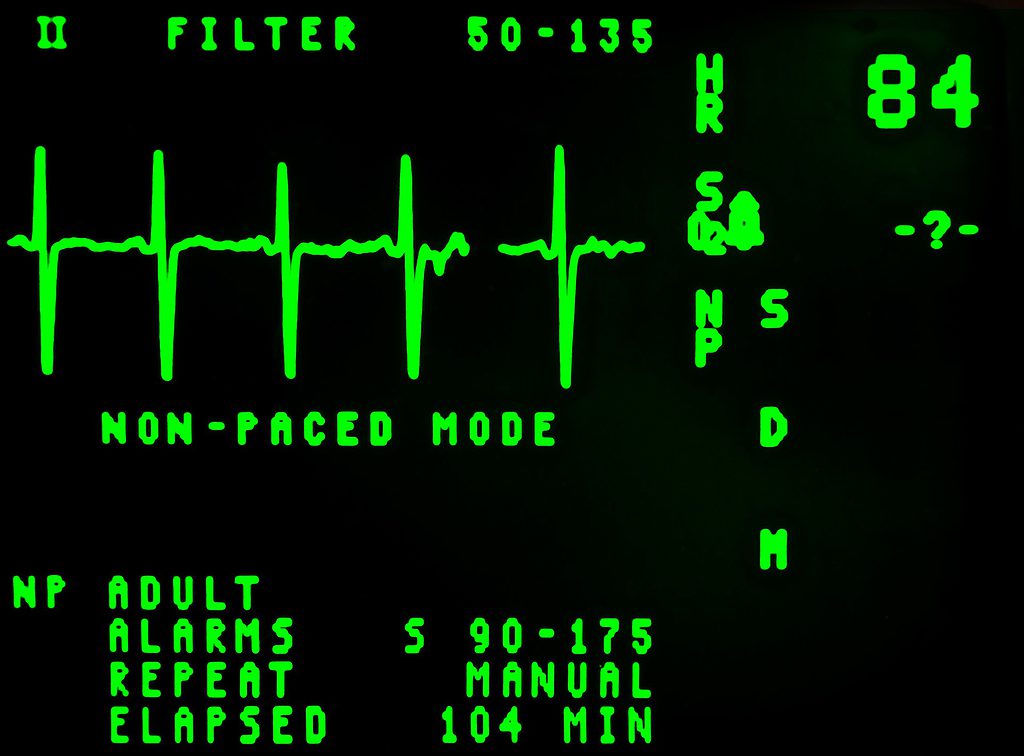 Dr Rebecca Dobson addresses the findings from a recent survey on why trainees don’t pursue careers in cardiology.
Dr Rebecca Dobson addresses the findings from a recent survey on why trainees don’t pursue careers in cardiology. - ESC Congress 2020 – The Digital Experience
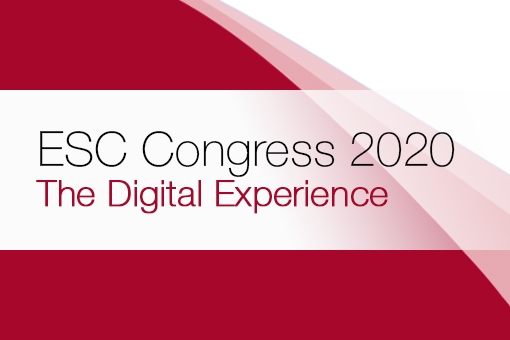 Day One By Dr Noor Sharrack, Cardiology SpR With public gatherings banned in the Netherlands due to the COVID-19 pandemic, the 2020 edition of the European Society of Cardiology Congress, originally due to take place in Amsterdam, was staged online from 29 August to 1 September. BCS members in attendance share their experience of the first day of this new format. Read the full article… Professor Barbara Casadei nicely opened the conference in her inaugural lecture with a stark reminder of the importance of … Read more
Day One By Dr Noor Sharrack, Cardiology SpR With public gatherings banned in the Netherlands due to the COVID-19 pandemic, the 2020 edition of the European Society of Cardiology Congress, originally due to take place in Amsterdam, was staged online from 29 August to 1 September. BCS members in attendance share their experience of the first day of this new format. Read the full article… Professor Barbara Casadei nicely opened the conference in her inaugural lecture with a stark reminder of the importance of … Read more - BCS Editorial: Computed Tomography Coronary Angiography in Stable Coronary Heart Disease: The UK Perspective
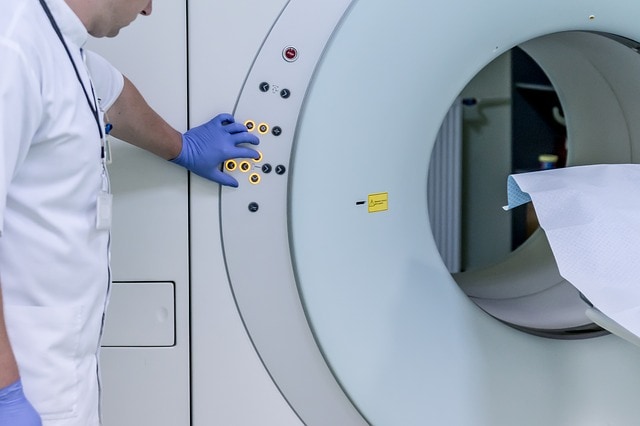 By Kenneth Mangion One in ten of all chest pain presentations to primary care have been reported to be due to coronary heart disease (CHD).(1,2) In the UK, rapid access chest pain clinics have been proven to be an effective way of identifying patients with angina.(3,4) There are a variety of non-invasive tests available for the investigation of patients with stable chest pain including anatomical imaging with CT coronary angiography (CTCA) and functional testing including stress electrocardiography, radionuclide scintigraphy, echocardiography, or magnetic resonance imaging.(5–10) Historically, the mainstay … Read more
By Kenneth Mangion One in ten of all chest pain presentations to primary care have been reported to be due to coronary heart disease (CHD).(1,2) In the UK, rapid access chest pain clinics have been proven to be an effective way of identifying patients with angina.(3,4) There are a variety of non-invasive tests available for the investigation of patients with stable chest pain including anatomical imaging with CT coronary angiography (CTCA) and functional testing including stress electrocardiography, radionuclide scintigraphy, echocardiography, or magnetic resonance imaging.(5–10) Historically, the mainstay … Read more
